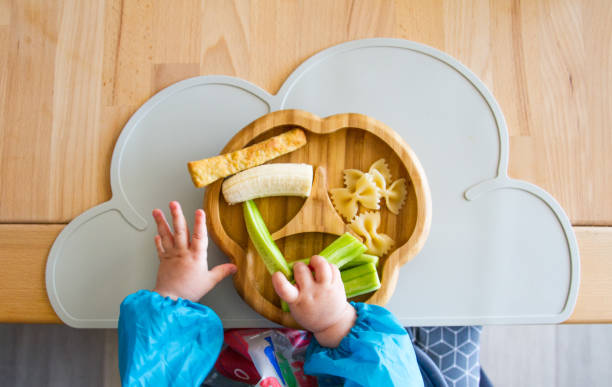Introduction:
Welcome to our blog dedicated to parents of toddlers aged 2 to 3 years! Parenthood is a beautiful journey filled with joy and wonder, but it also comes with its fair share of challenges. One such challenge is seeing your little one unwell and in discomfort due to common childhood illnesses. As a parent, it's natural to feel worried and helpless during these times, but rest assured, you're not alone. In this comprehensive guide, we aim to empower you with valuable insights, practical tips, and coping strategies to support your toddler through common childhood illnesses. From dealing with pesky colds and the flu to managing ear infections and fevers, we understand the importance of equipping you with the knowledge and tools to provide the care and comfort your child needs.
Our blog is divided into several sections, each addressing different aspects of coping with illness in toddlers. In the first section, we'll provide an overview of the most frequent ailments, such as colds, flu, ear infections, and fevers, ensuring you have a solid understanding of these common illnesses. We'll delve into the signs and symptoms to watch out for, enabling early detection and prompt action. Creating a healthy environment is paramount when it comes to safeguarding your toddler's well-being. In the second section, we'll discuss practical tips for promoting hygiene, proper handwashing techniques, and effective sanitization of toys and surfaces to minimize the risk of infections.

Nurturing your toddler's health is crucial, especially during illness. In section three, we'll explore the role of balanced nutrition in bolstering your child's immune system, the importance of hydration, and establishing healthy sleep routines to aid their recovery. We understand that seeing your little one uncomfortable can be heartbreaking. Therefore, in section four, we'll share strategies to ease their discomfort, including techniques for relieving congestion, managing fevers, and engaging in calming activities to soothe them during this challenging time.
Illness not only affects the physical well-being of a child but also their emotional state. In section five, we'll discuss how to provide emotional support and nurture their mental well-being. We'll explore ways to communicate effectively with your toddler, offer reassurance, and engage them in activities that promote a sense of normalcy and joy. Finally, we'll address when it's necessary to seek urgent medical care in section six. We'll outline red flag symptoms that may indicate a need for immediate attention and provide tips on emergency preparedness.
Remember, every child is unique, and their recovery process may vary. While this blog serves as a valuable resource, it's important to consult with your pediatrician for personalized advice and guidance specific to your toddler's needs. We hope this blog empowers you as a parent, providing you with the knowledge and tools necessary to support your toddler through common childhood illnesses. Stay tuned for the insightful articles ahead, and let's embark on this journey together, ensuring the health and well-being of our precious little ones.
Understanding Common Childhood Illnesses

1.1 Overview of Common Illnesses:
In this section, we will provide an overview of the most common illnesses that affect toddlers aged 2 to 3 years. Understanding these ailments will enable you to recognize symptoms early on and take appropriate measures. Some of the common childhood illnesses to cover include:
-
Colds: Explore the causes, symptoms, and duration of common colds in toddlers. Discuss the importance of managing symptoms such as a runny or stuffy nose, sneezing, and mild cough.
-
Flu (Influenza): Explain the difference between a common cold and the flu, highlighting the symptoms and potential complications. Emphasize the importance of flu vaccinations for toddlers.
-
Ear Infections: Detail the causes, symptoms, and potential complications of ear infections in toddlers. Offer tips for identifying signs such as ear pain, fussiness, difficulty sleeping, or tugging at the ears.
-
Fevers: Discuss the causes and significance of fevers in toddlers, including the potential underlying illnesses. Educate parents on when to be concerned about a fever and when to seek medical attention.
1.2 Recognizing Symptoms:
This subsection will delve deeper into each common illness, providing specific details on how to recognize symptoms in toddlers. Offer a comprehensive list of common symptoms for each ailment, such as:
-
Colds: Runny or stuffy nose, sneezing, cough, mild sore throat, and occasional low-grade fever.
-
Flu: High fever, chills, body aches, fatigue, sore throat, cough, congestion, and sometimes vomiting or diarrhea.
-
Ear Infections: Ear pain, tugging or pulling at the ears, difficulty sleeping, fussiness, irritability, and mild fever.
-
Fevers: Elevated body temperature, flushed skin, sweating, shivering, fatigue, and decreased appetite.
1.3 Seeking Medical Advice:
In this sub-section, highlight the importance of consulting a pediatrician for proper diagnosis and guidance. Discuss scenarios when it is crucial to seek medical advice, such as:
- Persistent or worsening symptoms
- High fever that doesn't respond to over-the-counter fever-reducing medication
- Severe ear pain or discharge from the ears
- Difficulty breathing or rapid breathing
- Dehydration symptoms (e.g., decreased urine output, dry mouth, lethargy)
- Changes in behavior or excessive irritability
Creating a Healthy Environment

2.1 Promoting Hygiene:
Maintaining a clean and hygienic environment is essential in preventing the spread of illnesses. Here are some practical tips to promote hygiene:
- Regular Handwashing: Teach your toddler the importance of handwashing. Encourage them to wash their hands with soap and water for at least 20 seconds, especially before meals, after using the bathroom, or after coming in contact with others.
- Hand Sanitizer Usage: When soap and water are not readily available, use alcohol-based hand sanitizers with at least 60% alcohol content. Show your toddler how to apply and rub sanitizer on their hands thoroughly.
- Cough and Sneezing Etiquette: Teach your child to cover their mouth and nose with a tissue or their elbow when coughing or sneezing. Properly dispose of used tissues and encourage frequent handwashing afterward.
- Avoiding Sharing Personal Items: Instruct your toddler not to share utensils, cups, toothbrushes, or towels with others to minimize the risk of spreading germs.
- Regularly Cleaning and Disinfecting: Clean and disinfect frequently touched surfaces, such as doorknobs, light switches, toys, and countertops, using appropriate disinfectants. Develop a routine for cleaning these surfaces at least once a day.
2.2 Handwashing Techniques:
Proper handwashing is a vital habit for your toddler's overall health. Here are some handwashing techniques to teach your child:
- Wet hands with clean, running water.
- Apply soap and lather well, ensuring to cover all areas of the hands, including between fingers and under nails.
- Rub hands together vigorously for at least 20 seconds. Sing a short song or use a timer to make it more enjoyable for your toddler.
- Rinse hands thoroughly under running water.
- Dry hands with a clean towel or let them air dry.
2.3 Sanitizing Toys and Surfaces:
To minimize the risk of infections, it's crucial to regularly sanitize toys, play areas, and frequently touched surfaces. Here are some guidelines:
- Plastic Toys: Wash plastic toys with warm, soapy water. Rinse them thoroughly and let them air dry. Avoid submerging toys with batteries or electrical components in water.
- Soft Toys: Check the manufacturer's instructions for cleaning soft toys. If machine washable, follow the recommended settings. If not, spot clean using a cloth and mild detergent.
- Play Areas: Regularly clean and sanitize play areas, including play mats, carpets, and high chairs. Use non-toxic cleaning products and ensure proper drying before allowing your toddler to use them.
- Frequently Touched Surfaces: Disinfect commonly touched surfaces such as doorknobs, light switches, countertops, and faucets using appropriate disinfectants. Follow the instructions on the product label for effective use.
Nurturing Your Toddler's Health

3.1 Balanced Nutrition:
Proper nutrition plays a vital role in supporting your toddler's immune system during illness. Ensure that your child receives a balanced diet that includes a variety of fruits, vegetables, whole grains, lean proteins, and dairy products. Consider these tips:
- Offer immune-boosting foods: Include foods rich in vitamins and minerals, such as citrus fruits, berries, leafy greens, yogurt, and lean meats. These can help strengthen your toddler's immune system.
- Serve warm, comforting meals: Prepare nourishing soups, stews, and porridges packed with vegetables, proteins, and whole grains. These can provide essential nutrients while soothing a sore throat or congestion.
- Encourage regular meals and snacks: Offer small, frequent meals throughout the day to ensure your toddler gets the necessary nutrients even if they have a decreased appetite during illness.
- Consult with a pediatrician or a nutritionist: If your child has specific dietary restrictions or concerns, seek professional guidance to ensure they receive appropriate nutrition during their recovery.
3.2 Hydration Importance:
Maintaining proper hydration is crucial for your toddler's recovery from illness. Here are some ways to encourage your child to drink more fluids:
- Offer fluids regularly: Provide water, diluted fruit juices, herbal teas, or electrolyte solutions in small, frequent amounts to prevent dehydration. Use age-appropriate cups or sippy cups to make it easier for your toddler to drink independently.
- Make fluids more appealing: Infuse water with slices of fruits or offer fruit-flavored ice cubes to make it tastier and more enticing for your child.
- Monitor urine output: Check your toddler's diaper or encourage them to use the toilet regularly. Aim for pale, lightly colored urine as a sign of adequate hydration.
- Avoid excessive sugar or caffeine: Limit sugary drinks and avoid caffeinated beverages, as these can interfere with hydration.
3.3 Restful Sleep:
Adequate sleep is crucial for your toddler's healing process and immune system. Establish healthy sleep routines to support their recovery:
- Stick to a consistent bedtime routine: Create a soothing routine before bed that includes activities like reading a book, cuddling, or listening to calming music. This routine helps signal to your child that it's time to wind down and prepare for sleep.
- Ensure a comfortable sleep environment: Keep the bedroom quiet, dark, and at a comfortable temperature. Use a cozy blanket and a supportive mattress or crib to enhance your toddler's comfort.
- Adjust nap schedules if needed: During illness, your toddler may need more rest. Be flexible with their nap schedule, allowing them to rest as needed throughout the day.
- Provide comfort items: If your child has a favorite stuffed animal or blanket, encourage them to have it nearby during sleep to provide a sense of security and comfort.
Comforting Your Sick Toddler

When your toddler is feeling unwell, it's essential to provide them with comfort and alleviate their discomfort as much as possible. In this section, we will explore various techniques and strategies to help your sick toddler feel better.
4.1 Easing Discomfort:
- Nasal Congestion Relief: Use saline nasal drops or a bulb syringe to clear your toddler's congested nose. Elevating their head slightly while sleeping can also help ease congestion.
- Soothing Sore Throat: Offer cold or warm liquids, such as water or herbal tea, to soothe your child's sore throat. Avoid giving them acidic or spicy foods that may irritate their throat further.
- Relieving Earaches: If your toddler is experiencing ear pain, apply a warm compress to the affected ear. This can provide temporary relief. Consult your pediatrician if the pain persists or worsens.
- Managing Cough: Encourage your child to drink warm liquids, use a cool-mist humidifier in their room, and provide cough drops suitable for their age (if recommended by a pediatrician).
4.2 Temperature Management:
- Using Fever Reducers: Consult with your pediatrician about appropriate fever reducers and dosages for your toddler. Acetaminophen or ibuprofen may be recommended, but always follow the instructions provided by your doctor.
- Dressing for Comfort: Dress your toddler in lightweight, breathable clothing to prevent overheating. Avoid using heavy blankets or excessive layers.
- Lukewarm Baths: If your child's temperature is elevated, a lukewarm bath can help reduce their body temperature and provide soothing relief.
4.3 Calming Strategies:
- Comforting Touch: Offer gentle massages or cuddles to provide comfort and reassurance to your sick toddler.
- Distraction Techniques: Engage your child in quiet and calming activities, such as reading books, coloring, or watching age-appropriate shows. This can help divert their attention from discomfort.
- Favorite Comfort Objects: Encourage your toddler to keep their favorite stuffed animal, blanket, or toy nearby. These familiar objects can provide them with a sense of security and comfort.
Emotional Support and Mental Well-being

5.1 Toddler Communication:
Understanding and responding to your child's expressions, words, and emotions during illness.
- Nonverbal Cues: Exploring nonverbal cues such as facial expressions, body language, and gestures that can indicate your toddler's emotions or discomfort.
- Active Listening: Practicing active listening techniques to show your child that you understand and empathize with their feelings.
- Encouraging Expression: Creating a safe and open environment for your toddler to express their emotions through words, art, or play.
5.2 Providing Reassurance:
Techniques to comfort and reassure your toddler, reducing anxiety and promoting a sense of security.
- Gentle Touch: Using soothing touch, such as gentle hugs or back rubs, to provide comfort and reassurance.
- Comfort Objects: Introducing comfort objects like a special blanket, stuffed toy, or favorite book to offer a sense of familiarity and security during illness.
- Affectionate Words: Using comforting and reassuring words to remind your toddler that they are loved and supported.
5.3 Engaging Activities:
Creative and interactive ideas to keep your child entertained during their recovery period.
- Quiet Play: Suggesting calm and quiet activities, such as puzzles, coloring books, or quiet reading time, for moments when your toddler needs rest but still wants to engage in activities.
- Interactive Games: Encouraging simple games like "Simon Says," "I Spy," or storytelling to keep your toddler engaged and distracted from discomfort.
- Sensory Play: Introducing sensory play activities like playing with kinetic sand, finger painting, or exploring textured objects to stimulate your toddler's senses and provide a positive distraction.
5.4 Emotion Regulation Techniques:
Assisting your toddler in managing their emotions during illness.
- Deep Breathing: Teaching your child deep breathing exercises to help them calm down and manage any anxiety or frustration they may experience.
- Positive Reinforcement: Offering praise and encouragement when your child exhibits positive coping strategies or shows resilience during their recovery.
- Establishing Routines: Maintaining a sense of normalcy by sticking to familiar routines, which can provide a sense of stability and security for your toddler.
When to Seek Urgent Care
6.1 Red Flag Symptoms:
While most common childhood illnesses can be managed at home with proper care, there are certain symptoms that should raise concerns and prompt you to seek urgent medical attention. It's essential to be aware of these red flag symptoms, as they may indicate a more serious condition or require immediate medical intervention. Some red flag symptoms to watch out for include:
6.1.1 High Fever: A persistent high fever (above 102°F or 39°C) that doesn't respond to over-the-counter fever reducers, or is accompanied by other concerning symptoms, should be evaluated by a healthcare professional.
6.1.2 Difficulty Breathing: If your toddler is experiencing rapid or labored breathing, wheezing, or shows signs of struggling to breathe, it may be indicative of a respiratory infection or other respiratory distress.
6.1.3 Severe Dehydration: If your child is showing signs of severe dehydration, such as dry mouth, sunken eyes, decreased urine output, or lethargy, immediate medical attention is necessary.
6.1.4 Persistent Vomiting or Diarrhea: If your toddler is unable to keep fluids down or has severe, watery diarrhea that lasts for more than 24 hours, it is important to seek medical care to prevent dehydration.
6.1.5 Severe Ear Pain: If your child is experiencing severe ear pain accompanied by fever or other concerning symptoms, it may indicate an ear infection that requires medical evaluation.
6.1.6 Unusual Behavior or Altered Mental State: If your toddler is unusually irritable, lethargic, disoriented, or exhibits any sudden changes in behavior or responsiveness, it may be a sign of a more serious illness or infection.
6.2 Emergency Preparedness:
While most childhood illnesses can be managed at home, it is crucial to be prepared for emergencies. Here are some important steps to take to ensure you are ready to handle urgent situations:
6.2.1 Emergency Contacts: Keep a list of emergency contact numbers, including your pediatrician's office, local urgent care centers, and the nearest hospital.
6.2.2 First Aid Kit: Have a well-stocked first aid kit readily available, containing essentials such as bandages, antiseptic solution, fever reducers, and any specific medications prescribed by your pediatrician.
6.2.3 CPR and First Aid Training: Consider taking a CPR and first aid course to equip yourself with life-saving skills in case of emergencies.
6.2.4 Follow Medical Advice: It is crucial to follow the instructions and advice given by healthcare professionals. Make sure you understand how to administer any prescribed medications or treatments correctly.
6.2.5 Trust Your Instincts: As a parent, you know your child best. If you have concerns about your toddler's health or well-being, trust your instincts and seek medical attention when necessary.
Conclusion:
As parents, it's never easy to see our little ones unwell, but with the right knowledge and tools, we can provide the care and comfort they need during common childhood illnesses. Throughout this blog, we have explored coping strategies and practical tips to support toddlers aged 2 to 3 years through illnesses like colds, flu, ear infections, and fevers. Understanding the common illnesses that affect toddlers is the first step in effectively managing their health. By recognizing the symptoms early on and seeking medical advice when necessary, you can ensure timely interventions and appropriate care.
Creating a healthy environment plays a crucial role in preventing the spread of illnesses. Promoting proper hygiene practices, including handwashing techniques and sanitizing toys and surfaces, reduces the risk of infections and keeps your toddler safe. Nurturing your toddler's health involves providing a balanced diet, encouraging hydration, and establishing restful sleep routines. A nutrient-rich diet strengthens their immune system, adequate hydration aids in recovery, and sufficient sleep supports their overall well-being.
Comforting your sick toddler is essential for their well-being. By easing their discomfort, managing their temperature, and employing calming strategies, you can help them feel more at ease and aid in their recovery. Emotional support and mental well-being are equally important during illness. Understanding and responding to your child's expressions and providing reassurance are vital for reducing anxiety and promoting a sense of security. Engaging activities also play a role in keeping their spirits up during the recovery period.
Remember that each child is unique, and their recovery process may differ. If you notice red flag symptoms or have concerns, always consult with a pediatrician for personalized advice and guidance. As you navigate the ups and downs of parenting a sick toddler, know that you are not alone. Armed with the information and strategies shared in this blog, you can provide the love, care, and support your little one needs to overcome common childhood illnesses. Stay resilient, stay informed, and be there for your child every step of the way.
Thank you for joining us on this journey, and stay tuned for more informative articles on parenting toddlers.

